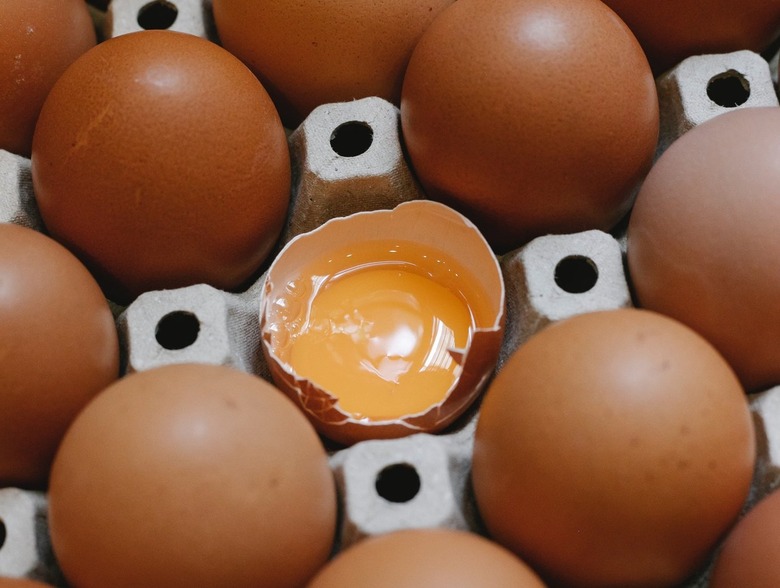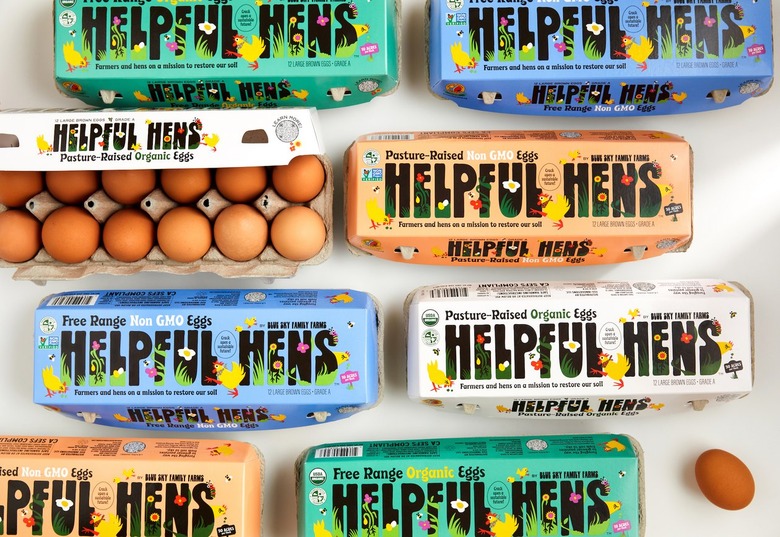What Exactly Are "Climate-Friendly Eggs"?
On August 10, the egg aisle in your grocery store might look a little different. That's because Blue Sky Family Farms and Egg Innovations will be releasing one of the first climate-friendly egg options. But, what exactly are climate-friendly eggs?
According to Blue Sky, its climate-friendly eggs are sustainably cultivated with regenerative practices on six family-owned farms. This means that the eggs, per the brand's press release, "come from hens that are raised in complete support of their natural behaviors, all while in pursuit of restoring the earth to its most organic state."
Called Helpful Hens, the line of eggs will be collected on farms that foster a diverse environment for plants, pollinators, and hens. This includes a three-tiered vegetation program with grasses, shrubs, and trees that allow for carbon (a contributor to global warming) to be absorbed at multiple elevations within the pasture.
In terms of the vegetation used, a total of 20 different species help foster interactions between the plants and animals. They also provide necessary shade for the hens. To ensure that all of their practices are working, Blue Sky tests the soil and monitors bird behavior as they keep track of the pastures' benchmarks and figure out how to implement these techniques on future farms.
Within the Helpful Hens collection of eggs, consumers will be able to purchase the following varieties: Pasture Raised Organic, Pasture Raised Non-GMO, Free Range Non-GMO, and Free Range Organic. If you're confused by what those labels mean, we've got the scoop here.
We can't wait to see how food brands will continue innovating their agricultural practices for the benefit of the entire planet.

